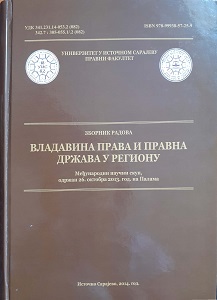Стадијуми у извршењу кривичног дела
Phases in the Process of Committing a Criminal Offense
Author(s): Dragan Jovašević
Subject(s): Criminal Law
Published by: Правни факултет Универзитета у Источном Сарајеву
Keywords: Preparatory activities;Attempt;Criminal offense;Perpetrator;Responsibility;Criminal sanctions;
Summary/Abstract: There are several stages in the process of committing a criminal offense. The first one is the stage of psychological character, in which a person considers the possibility of successful commission of a criminal offense. On the grounds of previously made decision, either at that very moment or after a certain period of time, that person starts acting in accordance with his decision and undertakes the activity that represents premeditated criminal offense and either causes the consequence (completed criminal offense) or the consequence is left out (attempted criminal offense). Sometimes, preparatory activities are necessary for commission of a criminal offense. These include the activities that create conditions and preconditions that allow the commission of previously planned criminal offense or make its commission faster, easier or simpler. A universal standpoint on determining the definition, the types and the roles of preparatory activities in contemporary criminal law, as well as the grounds for the liability to punishment in such cases, have not yet been accepted. There are pieces of legislation that incriminate preparatory activities as punishable stadiums in the commission of criminal offense, whereas others treat preparatory activities as independent criminal offenses. Тhis paper discusses the definition, types and significance оf these phases in the process of committing a criminal offense in theory, practice and legislation.
- Page Range: 653-671
- Page Count: 19
- Publication Year: 2013
- Language: Serbian
- Content File-PDF

